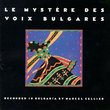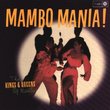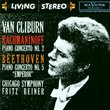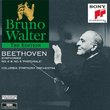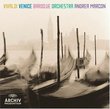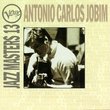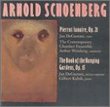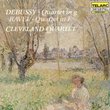| All Artists: George Frideric Handel, Trevor Pinnock, The English Concert, Anthony Rolfe Johnson, Arleen Auger, Catherine Robbin, James Bowman, David Wilson-Johnson, Nicolas Robertson, Richard Wistreich Title: Handel - Belshazzar Members Wishing: 0 Total Copies: 0 Label: Archiv Prod Import Release Date: 6/15/2004 Album Type: Box set, Original recording reissued, Import Genre: Classical Styles: Opera & Classical Vocal, Historical Periods, Baroque (c.1600-1750) Number of Discs: 3 SwapaCD Credits: 3 UPC: 028947703723 |
Search - George Frideric Handel, Trevor Pinnock, The English Concert :: Handel - Belshazzar
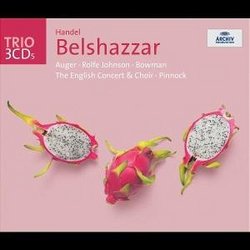 | George Frideric Handel, Trevor Pinnock, The English Concert Handel - Belshazzar Genre: Classical
|
Larger Image |
CD DetailsSimilar CDsSimilarly Requested CDs |
CD ReviewsISSUE RESOLVED ON THE EUPHRATES DAVID BRYSON | Glossop Derbyshire England | 06/19/2005 (5 out of 5 stars) "One question I might find among the more difficult in my life would be - which is my favourite Handel oratorio? I suspect that my answer would generally be 'the one I heard most recently', and that, as I write this, is Belshazzar. It is a magnificent thing, a heavenly thing. It has taken me longer than it should have to come to an appreciation of what makes Handel the phenomenon - as a genius, as an artist, as a craftsman - that he is, but I am comforted to reflect that no less a genius than Haydn, at the age of nearly 70 gaining a more thorough knowledge of Handel in performance, was driven to say that he felt a mere apprentice. In his sense of how to pace a dramatic narrative, in his instinct for how to use the human voice in song and above all in chorus, in the matchless flexibility and adroitness he displays at word-setting and in the audacity of his melodic and harmonic effects I can think of nobody who can approach Handel on his own terms. Belshazzar was not a great success at the box-office, although this may have had more to do with difficulties in the casting than because it was deemed insufficiently biblical for oratorio, which seems to have been the fate of Hercules. It seems to me to be perfectly well described as oratorio in other ways too, with (for one thing) the extensive use of the chorus that we find in, say, Samson but not in Hercules. The one passage that cries out for visual effects is of course the apparition of the moving finger itself. Even here the composer can go a long way with sheer power of suggestion, by the strange unaccompanied violin figure creeping upwards and the frightened brevity of the vocal numbers. Otherwise for me Belshazzar is as much an oratorio as Samson is. It has the same librettist too, the crusty and formidable Jennens, who had also collaborated with Handel on Saul and on Messiah itself. Jennens' full text is not provided, but I think if you read the synopsis first and then follow the work from the headlines to each number you will have no difficulty in catching the words, so clear is the enunciation by soloists and chorus alike. As usual, Handel was driven to make alterations to the score for practical reasons. He had been a little concerned about its length, roughly 2 hours and 50 minutes in this performance, but where he wishes to be expansive he gives us full measure - two arias in Act I scene 4 take well over 7 minutes each. The liner-essay (a good one, by Anthony Hicks) goes into the issue of the version of the score used here, and I personally have no problem with it. I have no faults to find with the performance in any way. Pinnock is an established specialist, the instruments are period instruments and vocal cadenzas at the end of the arias are kept minimal. Anthony Rolfe Johnson, James Bowman and David Wilson-Johnson are tried and trusted Handel singers and at their best here, and Nicolas Robertson and Richard Wistreich in the smaller parts are every bit as good. The part of Cyrus is a soprano part, taken by Catherine Robbin, and when I thought I heard just one touch of strain in `Destructive War' in the final scene she makes up for it instantly in her superb duet with Arleen Auger in the following number. Auger as Nitocris the mother of Belshazzar has the biggest part, and she covers herself with glory all the way through. The recording is perfect, and when I saw an aria entitled `Destructive War, thy limits know' near the end I felt a sharp sense of irony in the year 2005. Cyrus, Handel, Jennens, you should all have been living at this hour." Enjoiyable, but lacking, too. OperaOnline.us | Boston, MA | 08/15/2004 (3 out of 5 stars) "This 3CD set of George Frederic Handel's (1685-1759) "Belshazzar", from Archiv Production, a division of Universal Music, is proof again that transfer from vinyl to tape to disc brings with it improvements in listening that make the purchase a worthwhile addition to anyone's listening library. Written in 1744, "Belshazzar" is an oratorio in the operatic style that is wonderful oratorio, but lacking the true depth one expects to hear in an opera. London opera audiences of Handel's day agreed, as both "Belshazzar" and Handel's other offering of the period in the same style, "Hercules", were not terribly successful. Instead of the scheduled 24 performances only 16 were given and Handel never offered a full season of oratorio again. The Libretto by Charles Jennens (1700-1773) is, as the production notes say, meant "not only to show the fall of Babylon but to show it as a fulfillment of divine prediction and to confirm the biblical testimony by reference to classical history." There's only one problem, as good a quality as the CDs are, it is not possible to follow the full libretto and the accompanying booklet includes no text, which is a shame. I think the listening experience would have been increased immeasurably if one was able to follow the text of what is being sung. Nonetheless the dramatic narrative is fluid and even, and the English Concert and Choir provide nice balance to the less full vocal passages, as in Disc 3s "Oh Glorious prince", cut 10. There is enough of this throughout to keep one's interest, but disappointing if what one expects is another ""Messiah"."
|

 Track Listings (19) - Disc #1
Track Listings (19) - Disc #1
